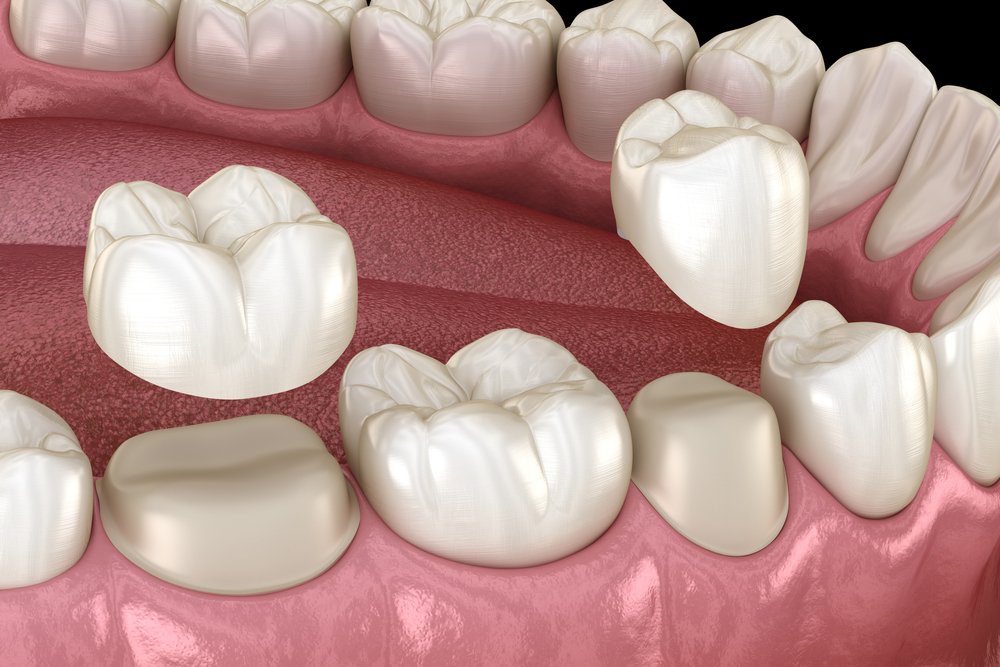Worried about a cracked or weak tooth? Our comprehensive guide explains the 7 key signs you need a dental crown and what the procedure involves. Restore your smile’s strength and beauty at Family Dental clinic Multispeciality Centre in Noida. Read now!
Introduction
Have you ever felt a sharp twinge in your tooth while eating? Noticed a tooth that feels a little weaker than the rest? Or maybe you’ve just been putting off a dental visit, hoping that small chip or crack will magically disappear. We’ve all been there. Our teeth are incredibly strong, but they’re not invincible. Over time, they can suffer from decay, injury, and wear and tear, leading to problems that can’t be fixed with a simple filling.
That’s where dental crowns come in.
What is Dental Crown and 7 Signs You Need a Dental Crown?
A dental crown, often referred to as a “cap,” is a custom-made restoration that covers the entire visible portion of a damaged tooth. Think of it as a protective helmet that restores the tooth’s shape, size, strength, and appearance. It’s a common and highly effective solution, but knowing when you actually need one can be tricky.
In this comprehensive guide, we’ll walk you through the seven most common signs you need a dental crown. We’ll also cover what happens during the procedure, the different types of crowns available, and how to care for your new restoration. Our goal is to empower you with the knowledge to make an informed decision about your oral health, so you can stop worrying about that nagging tooth and get back to smiling with confidence.
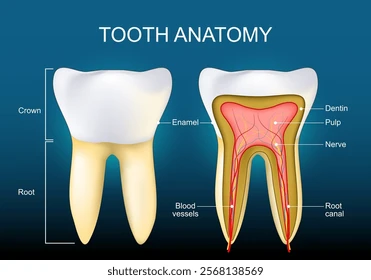
Sign #1: You Have a Tooth with a Large Filling
For many people, fillings are a regular part of dental care. They’re a fantastic solution for treating small cavities. However, a large filling can actually weaken the overall structure of your tooth.
Imagine your tooth is a house. A small filling is like patching a hole in the wall—it’s a quick fix that doesn’t compromise the structural integrity. A large filling, on the other hand, is like trying to hold up a wall with a small piece of tape. It works for a while, but it’s not a long-term solution. When a filling takes up more than half of the tooth’s surface, there isn’t enough natural tooth structure left to support it. The remaining walls of the tooth become brittle and are at a high risk of fracturing, especially under the pressure of chewing.
If you’ve had a filling that seems to take up a significant portion of your tooth, or if your dentist has mentioned that it’s “very large,” it’s a good idea to discuss the possibility of a crown. A crown will encase the entire tooth, providing the strength needed to prevent future cracks and breaks. It’s a proactive step that can save you from a more painful and costly emergency procedure down the road.
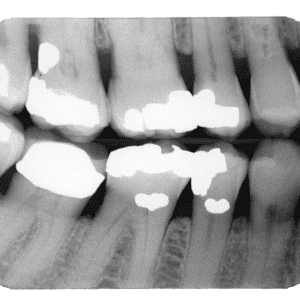
Sign #2: You Have a Cracked, Chipped, or Fractured Tooth
A chipped tooth might seem like a minor cosmetic issue, but depending on the size and location of the crack, it can be a serious problem. While a small chip on a front tooth might be repaired with dental bonding, a crack that extends deep into the tooth can lead to more severe complications.
Fractured teeth are particularly concerning because the crack can act as a highway for bacteria, allowing them to travel to the sensitive inner pulp of the tooth. This can lead to infection, severe pain, and potentially the need for a root canal. A dental crown can be an ideal solution here. By completely covering the tooth, the crown holds the cracked pieces together, preventing the fracture from spreading and protecting the inner pulp from further damage.
If you notice any of the following, it’s time to call your dentist:
- A visible crack or chip in your tooth.
- Pain when chewing or biting.
- Sensitivity to hot or cold temperatures.
- A crack that you can feel with your tongue.
Don’t wait for the pain to get worse. A timely crown can save the tooth and prevent the need for an extraction.
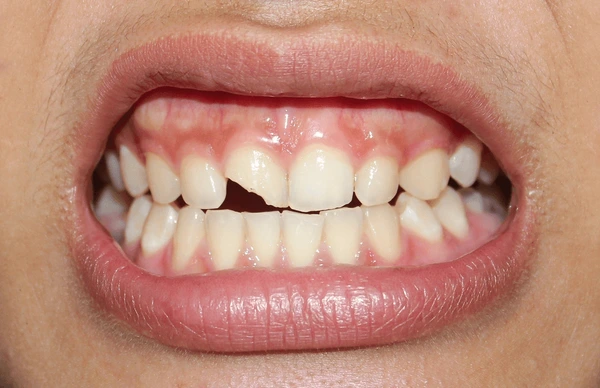
Sign #3: You’ve Had a Root Canal
The root canal procedure is a lifesaver for teeth with infected or damaged pulp. However, after the procedure, the tooth is no longer “alive” in the traditional sense. The removal of the pulp, which contains the tooth’s blood vessels and nerves, makes the tooth more brittle and susceptible to fracture.
That’s why dentists almost always recommend placing a crown on a tooth that has undergone a root canal, especially on molars and premolars that bear the brunt of chewing forces. The crown provides the necessary protection, restoring the tooth’s structural integrity and ensuring it can withstand the pressures of everyday use.
Think of it this way: a root canal saves the tooth from the inside, and a dental crown protects it from the outside. Without this external protection, the tooth is at a much higher risk of breaking, which could lead to the need for an extraction and replacement.
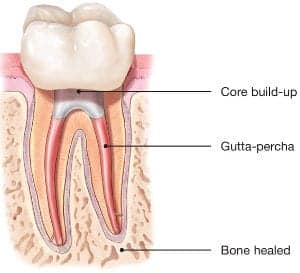
Sign #4: You Suffer from Severe Tooth Wear and Tear
Do you grind or clench your teeth (a condition known as bruxism)? Or maybe you’re a heavy chewer? Over time, these habits can lead to significant wear and tear, wearing down the enamel and shortening the height of your teeth.
When the enamel wears away, it exposes the softer, more sensitive dentin layer underneath. This can lead to increased tooth sensitivity, as well as a change in your bite. Severe wear can even affect your jaw muscles and cause facial pain.
A dental crown can be used to restore the worn-down teeth to their original shape and size. This not only improves their appearance but also helps to restore your bite and prevent further wear. Crowns can be made from durable materials like porcelain or zirconia, which are much stronger and more resistant to wear than natural enamel.
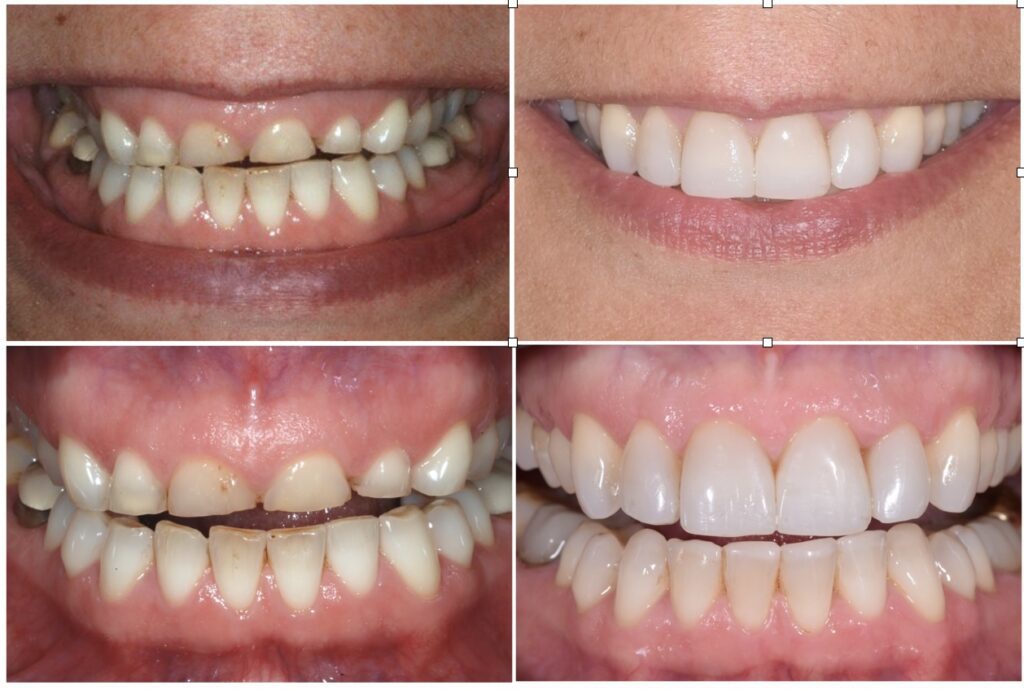
Sign #5: You Have a Severely Discolored or Misshapen Tooth
Sometimes, a tooth may not be structurally compromised, but its appearance can be a source of embarrassment or self-consciousness. This can be due to:
- Severe discoloration that doesn’t respond to professional whitening treatments.
- Misshapen teeth that are too small, too pointy, or don’t fit in with the rest of your smile.
- Genetic abnormalities that affect the tooth’s shape or size.
While cosmetic issues can sometimes be corrected with veneers or bonding, a dental crown is often the better choice for a more comprehensive and durable solution. Because a crown covers the entire tooth, it can completely transform its appearance, restoring its natural color and shape. This is particularly useful for a single, severely discolored tooth that stands out from the rest. The result is a seamless, natural-looking smile that you’ll be proud to show off.
Like all things, dental crowns don’t last forever. The average lifespan of a dental crown is 10-15 years, but this can vary depending on the material, your oral hygiene habits, and your diet. Over time, the cement holding the crown in place can wear away, or the crown itself can develop small cracks.

#6: You’re Replacing an Old, Leaky Crown
Signs that your old crown might need replacing include:
- A dark line appearing at the gum line. This can indicate that the crown is wearing down or that the underlying metal (if it’s a PFM crown) is showing through.
- Sensitivity or pain around the crowned tooth. This could mean that bacteria have found their way underneath the crown, causing decay.
- The crown feels loose or falls off completely. This is a clear sign that the cement has failed and the crown needs to be recemented or replaced.
Ignoring a failing crown can lead to decay of the tooth underneath, which could result in the need for a more complex procedure or even extraction. If you suspect your old crown is nearing the end of its life, a visit to the dentist for a check-up is a great idea.
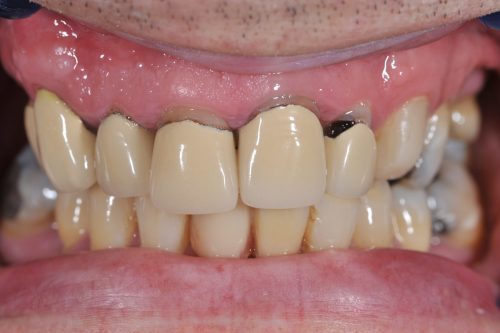
Sign #7: You Need to Secure a Dental Bridge
A dental bridge is a permanent restoration used to replace one or more missing teeth. It consists of an artificial tooth (or teeth) that is held in place by two dental crowns, which are cemented onto the natural teeth on either side of the gap.
If you have a missing tooth and are considering a dental bridge, the healthy teeth on either side of the gap will need to be prepared to receive crowns. These crowns serve as the anchors for the bridge, providing the stability and support needed to hold the artificial tooth in place. Without strong and properly placed crowns, the bridge would not be secure and could fail.
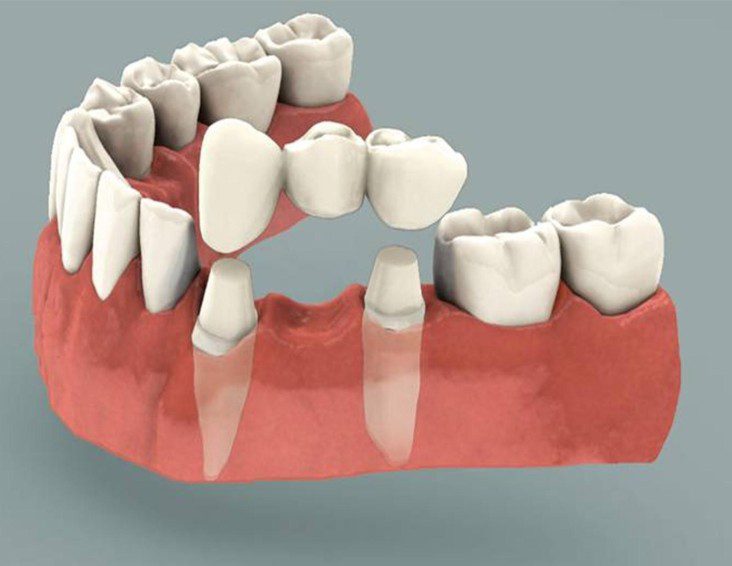
What Happens Next? The Dental Crown Procedure
If you recognize any of these signs, don’t panic! The process of getting a dental crown is a common and straightforward procedure that we perform regularly at our clinic. Here’s a brief overview of what to expect:
Step 1: Consultation and Preparation. We’ll first conduct a thorough examination of your tooth, often using X-rays, to assess its condition. We’ll discuss the best material for your new crown (porcelain, zirconia, metal, etc.) based on the tooth’s location, your budget, and your aesthetic goals. Then, we’ll numb the area and prepare the tooth by removing a small amount of enamel to make room for the crown.
Step 2: Impressions. After the tooth is prepared, we’ll take a digital scan or a physical impression of your teeth. This impression is sent to a dental lab, where a skilled technician will custom-create your crown to match the exact shape and size of your natural teeth. You’ll be fitted with a temporary crown to protect your prepared tooth while you wait.
Step 3: Placement. In a second appointment, your permanent crown will be ready. We’ll remove the temporary crown, clean the area, and check the fit and color of the new crown. Once you and your dentist are happy with the result, the crown will be permanently cemented into place.
Types of Dental Crowns Available
| Crown Type | Features & Benefits | Best For |
|---|---|---|
| Porcelain/Ceramic | Natural-looking, blends with teeth | Front teeth |
| Metal | Durable and strong, long-lasting | Molars/back teeth |
| Porcelain-Fused-to-Metal (PFM) | Strong core, natural appearance | All-purpose use |
| Zirconia | High strength, biocompatible, tooth-colored | High-stress areas |
Benefits of Getting a Dental Crown
- Restores chewing ability
- Protects against further decay or fracture
- Improves appearance of damaged teeth
- Prevents tooth extraction
- Long-lasting and durable (5-15+ years)
- Enhances overall oral health
How Long Do Dental Crowns Last?
With proper care, dental crowns can last 10 to 15 years or more. Their longevity depends on:
- Oral hygiene practices
- Avoiding habits like teeth grinding or chewing hard foods
- Visiting your dentist regularly for checkups and cleanings
How Much Does a Dental Crown Cost in Noida?
The cost of a dental crown in Noida typically ranges from ₹2,000 to ₹12,000 per tooth, depending on:
- The material used (ceramic, metal, zirconia, etc.)
- Whether it’s part of a larger treatment plan (e.g., implant or bridge)
- Clinic location and dentist experience
At Family Dental Clinic Multispeciality Centre, Sector 70 Noida, we provide affordable and high-quality crowns tailored to your dental needs.
Your Next Step: Taking Action for a Healthier Smile
Recognizing the signs that you might need a dental crown is the first and most important step towards protecting your oral health. A timely crown can prevent further damage, alleviate pain, and restore the function and beauty of your smile. Don’t let a small dental problem turn into a big one.
If you’re experiencing any of the signs we’ve discussed, we encourage you to schedule an appointment with our experienced team. We’ll provide a comprehensive assessment and discuss the best treatment options for your unique needs. We are here to help you achieve a healthy, confident smile that lasts a lifetime.
Ready to learn more? Call us today at 9312602591 or book your appointment online at https://familydentalclinicnoida.com
FAQ’s about Dental Crowns
Q: Are dental crowns painful? A: The procedure for getting a dental crown is not painful. We use a local anesthetic to ensure you are comfortable throughout the preparation process. After the procedure, you may experience some minor sensitivity, which can be managed with over-the-counter pain relievers.
Q: How long do dental crowns last? A: With proper care, dental crowns can last for 10 to 15 years, and often much longer. The longevity depends on factors like the material used, your oral hygiene habits, and whether you grind or clench your teeth.
Q: Can I get a dental crown in one day? A: Some dentists offer same-day crowns using advanced technology like CEREC. This allows us to create and place the crown in a single visit. We can discuss if this option is suitable for you during your consultation.
Q: How do I care for my new dental crown? A: Caring for a dental crown is just like caring for a natural tooth. Regular brushing, flossing, and routine dental check-ups are essential to keep your crown and the underlying tooth healthy.
When to See a Dentist
Don’t wait until a cracked or decayed tooth turns into an emergency. If you’re experiencing:
- Persistent tooth pain
- Discomfort when chewing
- Visible cracks or damage
- Sensitivity to hot or cold
…it’s time to visit your dentist.
Visit the Best Dental Clinic in Noida for Crowns
At Family Dental Clinic Multispeciality Centre, our experienced dentists use the latest technology to provide natural-looking, durable, and comfortable dental crowns. We serve patients across Noida, including Sector 70 and nearby areas.
📍 Location: Shop no.LG-06 Pan Oasis Market Sector 70, Noida
📞 Contact: 9312602591
🌐 Website: https://familydentalclinicnoida.com
Final Thoughts
Dental crowns do more than improve your smile — they preserve your natural teeth, enhance comfort, and restore function. Whether it’s due to decay, damage, or cosmetic concerns, knowing when you need a crown — and acting early — can save you from costly treatments later.
Ready to protect your smile?
Book your dental consultation today!


